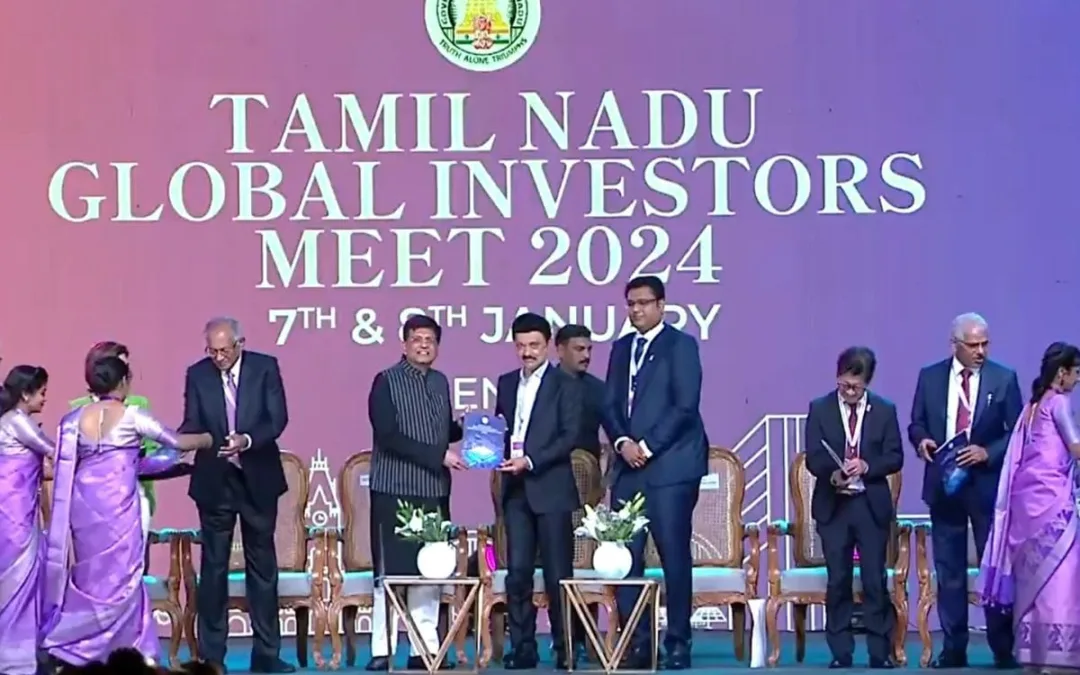Investors may be drawn to other states by good governance and ease-of-doing business. The Tamil Nadu story is one of human capital, natural resources and good core infrastructure like good roads, ports, airports, waterways, railways and affordable power.
Human capital has been depleting because of migration of skilled labour to other states and countries due to the deteriorating social and education institutional infrastructure in the state. Even the former Chief Economic Adviser of India, Arvind Subramanian, and Raghuraman Rajan have raised concerns. Arvind Subramanian has specifically said that “the social infrastructure in Tamil Nadu is not as attractive as Mumbai, Pune, Hyderabad, NCR, and Bangalore”. The liquor policy and monopoly production model have led to the situation.
Nevertheless, successive state governments have done their bit in facilitating investment beyond the endemic corruption in the process of getting approvals from the village through district to the capital itself. Recognizing the continued flight of human capital, they’ve endeavored to leverage other strengths such as natural resources and infrastructure. Better law and order, relatively speaking, and less industrial conflict have also been pluses for the state.
Meanwhile, state-level global investor meets have become huge publicity events. Gujarat started it in 2003 and has since organized 10 such events. Easy access to the top political leadership has helped the state draw top corporates.
Human capital has been depleting because of migration of skilled labour to other states and countries due to the deteriorating social and education institutional infrastructure in the state
Tamil Nadu has organized three such summits with the vision of achieving a trillion dollar economy by 2030 – 2015, 2019 and in 2029. According to the department of Guidance Bureau, “in the year 2021-22, Guidance signed MOUs with 130 companies with a committed investment of Rs 68,375 crore and employment generation for 2,05,802 persons and in 2022-23 Guidance has signed 77 MOUs with an investment commitment of Rs 1,54, 834 crore and employment commitment for 1,38,348 persons.”
Major Focus Sectors for the latest global investors meet 2024 were “Automobile and Auto Components, Chemicals, Electronics & Hardware, Heavy Engineering, Leather, Textiles, Financial Services, and Software”. The Guidance Bureau has said that a total of 631 MoUs were signed with an investment commitment of Rs 6,64,180 crores which will result in the creation of direct employment opportunities for more than 14.5 lakh persons and total employment for some 27 lakh. The industries department attracted 57 percent of new investments, the energy department attracted 20 percent, housing and urban development attracted 9 percent, and, sadly, IT and Digital services attracted only 3 percent.
Also Read: Before Stalin, Edappadi was in Dubai; policy continuity
The actual investments attracted from outside the state are Rs 6,00,607 crores. The remaining Rs.63,573 crores have been generated by the MSME sector within the state through the District Industries Centres (DIC). Thus, 10 percent of investments were attracted from within the state which was not highlighted in the meeting.
The investments attracted by major sectors as reported by the state government are “advanced electronics manufacturing, Green energy, Non-leather footwear, Automobiles and e-vehicles, Defence and aerospace, Data centres, Global capability centres, Information Technology and Digital services, etc”. This means the state’s core sectors such as chemicals, heavy engineering, and financial services had ceased to be as attractive.
Typically, states use such summits for the purpose of image and brand building. Mindless glorification of the current political leadership characterizes the events. There is little transparency regarding how many of these committed investments are actually converted into implemented on the ground.
In the TN summit held this year, the exhibition was impressive. The stalls of companies were up to global standards. But the technical sessions were just not weighty enough. Poor planning, inadequate space and time and sequencing were dampeners. The general public were allowed into the technical sessions that cramped the space for policy experts to participate meaningfully in the discussions.
The buyer-seller meeting facilitation was poor. The state government said in its press release that “exporters from more than 20 countries interacted with more than 500 MSMEs.” This was not the reality on the ground. Few agencies participated. The atmosphere was that of a vegetable market.
In the TN summit held this year, the exhibition was impressive. The stalls of companies were up to global standards. But the technical sessions were just not weighty enough. Poor planning, inadequate space and time and sequencing were dampeners
The State Industries Minister said on Jan 23, days after the summit, that the state government aims to convert “at least 70%” of the MoUs that the state signed in the recent Global Investors Meet 2024. So only some Rs 4.65 lakh is being promised to come to fruition. This means Rs 2 lakh crore of investments will not come through at the very outset. This implies the MoUs were signed without sufficient homework. How many of these were major employment generators that got lost in the adulatory statistics and initial promises?
Tamil Nadu’s economic development continues to be uneven. Districts like Dharmpuri, Villpuruam and some southern districts continue to fare poorly. The quality of new investments has to be assessed in terms of addressing this regional imbalance.
In sum, this summit bears out the fact that the state will not grow at 18% that it needs to notch up every year for the next seven years to achieve the trillion dollar economy target by 2030. A major rethink in strategy is required. Providing digital services to the people matched with good governance can be a significant contributor to growth. Enhanced delivery of welfare and other schemes can be a growth driver and speed up investments. That doesn’t seem to be happening. If things continue, Tamil Nadu may fall behind fast growing states such as Uttar Pradesh in performance.
(The author is an economist and public policy expert)











